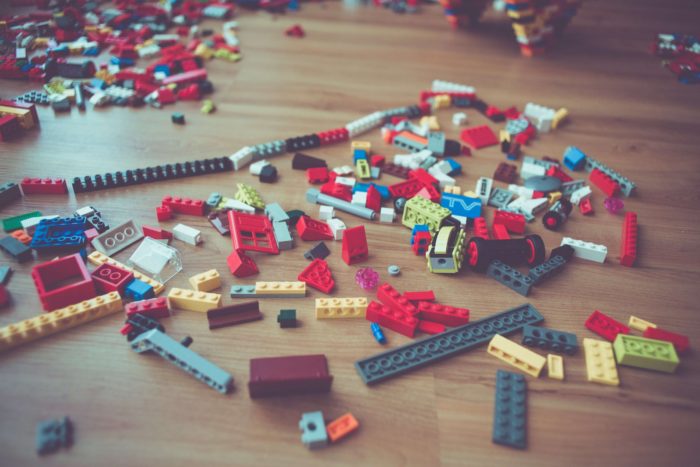Messy Kids & Summertime Madness

We’ve got some strategies for getting your children to clean up after themselves.
1. Find engaging ways for kids to practice good cleaning habits.
Getting your kids to do chores during summer—and year-round—starts with forming good cleaning habits and practicing them. It won’t happen overnight, but a consistent routine helps establish good habits for kids.
Encourage pre-teens and teens to reorganize their rooms their way. Put the power in your kids’ hands and give them control over their own space. They may feel a sense of autonomy, accomplishment, and a desire to keep their newly designed space clean.
Buy, make, or print a daily chore checklist. Depending on your child’s age and interests, you could use a sticker or voucher system, a magnetic chart, a chore checklist, or a chores app for kids and adolescents. In the increasingly digital world, tech-savvy kids would find an app more engaging. Artistic kids can even design their own chart! Just browse around for simple designs or more complex DIY projects.
Pro tip: laminate the chart, put it on the fridge or a magnetic board in their room, and use a dry erase marker for reuse daily.
2. Break chores down into manageable chunks.
Big messes don’t just overwhelm adults! Kids fear losing all of their free time to chores. Try these methods for managing the overwhelming mess.
Set specific cleanup times & keep it short. Acclimate your kids to a set cleaning schedule. Since children have shorter attention spans and require mental stimulation, they will lose interest. With breaks for playtime and extracurricular activities, it may be less unbearable.
Simplify cleanup by category. First and foremost, use specific language when you ask kids to clean up. Don’t be over-broad in your request. Instead of “I need you to clean up your room,” The Parent Coach recommends firm language and small steps: “‘Start by putting away anything with red on it … or anything made of plastic … or whatever is small enough to fit in the palm of your hand.’” You can even turn this into an “I Spy” game. Make the tasks as simple as possible so as not to overwhelm the child.
You can also break down the task by:
- Area of the room
- Type of toy, if multiple are out of place (e.g. dolls, costumes, blocks, etc.)
- Type of mess (toys, clothes, unmade bed, vanity/dresser accessories, etc.)
Pro tip: If you have multiple kids, encourage them to work together. The process is faster and easier when everyone pitches in!
3. Make cleaning fun.
So far, we’ve learned methods for teaching kids to do chores and making it easier. The next challenge: how to make cleaning fun!
Play music. Family movies have promoted this idea for decades. Remember “Whistle While You Work”? How about “A Spoonful of Sugar”? With really young kids, you can sing classic clean up songs, but it doesn’t have to be related to cleaning. Whatever children’s music they like will make the job more fun. Let older kids choose their own playlist.
Turn their chores into a game. We know that kids need mental stimulation, and games fulfill that need. We have two fun cleaning games for kids to get you started.
Play pretend. Children often emulate adults by playing the roles of cooks, teachers, cashiers, etc. Teach them how to clean like Mom does with their own cleaning tools. Or use a pushable container like a child-sized shopping cart (the cleanup cart), and have kids pick up clutter throughout the room. They can then check out at a toy register and put the “groceries” away afterwards.
Race the clock (or each other). Let your child set the notification sound and have them race to finish cleaning up before the time runs out! Alternatively, if you have multiple children, they can race each other to win a privilege you set in advance (e.g. pick the movie for movie night).
For more ideas, do some digging, or create some games of your own! Even better, let kids make up the game, and help them create the rules.
4. Reward them.
While this is obvious, parents all too often see this method as a bribe; however, bribes and rewards couldn’t be more different. Bribes are last-ditch efforts to force a child to do something—a short-term solution to modify behavior right then and there. It encourages future “emotional blackmail,” or behavior which forces the parents to act. With a bribe system in place, the child controls the situation.
On the other hand, rewards are intentional. This system aids in long-term management of their behavior by setting expectations with the child in advance, so they know what they stand to lose. Rewards tell your children that you recognize their efforts, positively reinforcing their good behavior—or, in this case, good cleaning habits.
Summer Vacation 101: Complete
Build the foundation for good cleaning habits, and make the experience engaging and fun for them with play and tangible rewards. Positive reinforcement is key. Once you master summertime madness, managing children’s chores year-round becomes a piece of cake!
Reward yourselves with a clean home! We want to make your job as a parent easier. If you’re looking for a quality cleaning service in Richmond, VA that can pamper you, you’ve found it! Contact us today to learn more.

